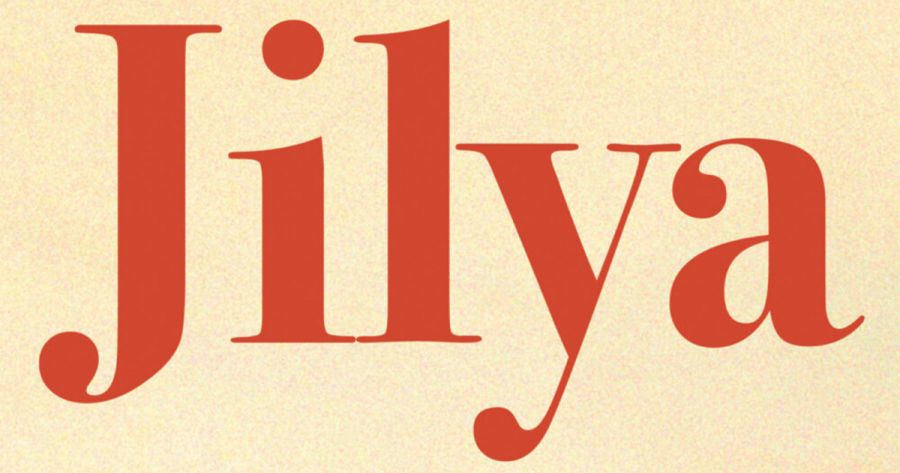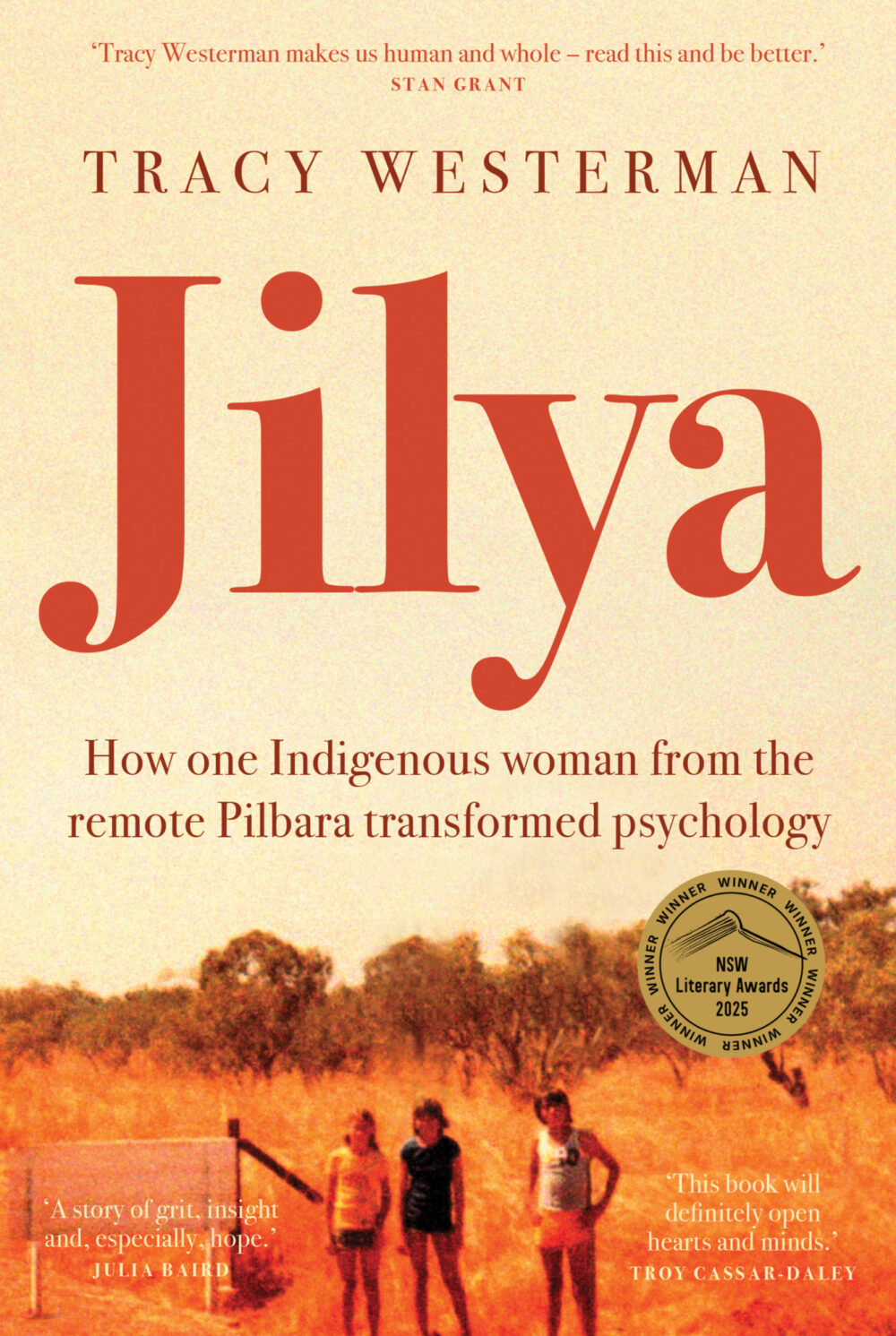
- Free Article: No
- Contents Category: Memoir
- Review Article: Yes
- Article Title: Stop this!
- Article Subtitle: Nyamal warrior determination
- Online Only: No
- Custom Highlight Text:
There’s a crisis happening in Australia – and each year it worsens,’ writes Tracy Westerman. Aboriginal children face devastating disparities: they die at four times the rate of non-Aboriginal children and forty per cent of these deaths are suicides, in some cases of children as young as ten years old.
- Book 1 Title: Jilya
- Book 1 Subtitle: How one Indigenous woman from the remote Pilbara transformed psychology
- Book 1 Biblio: University of Queensland Press, $34.99 pb, 384 pp
- Book 1 Cover Small (400 x 600):

- Book 1 Cover (800 x 1200):

- Book 1 Readings Link: https://www.readings.com.au/product/9780702268694/jilya--tracy-westerman--2024--9780702268694#rac:jokjjzr6ly9m
How a society treats its most vulnerable provides insight into the core values of that society. A proud Nyamal woman and psychologist from the small and isolated mining town of Tom Price in the Pilbara region of Western Australia, Westerman is horrified by these statistics and is calling on all Australians to be as alarmed as she is. This heartwarming and unflinching memoir tells the life story of Westerman, a warrior who, inspired by her mother’s love and unwavering strength, is fighting for the human rights of Australian Aboriginal and Torres Strait Islander youth and their families. While we read Westerman’s words, Australian journalist, author, and television presenter Stan Grant calls upon us all to imagine that it is our own family that she is fighting for, because she is.
Affliction strips us of our humanity – we become nothing – then a miracle happens and we realise the sufferer is us, all of us. Tracy Westerman makes us human and whole – read this and be better.
In 2002, Westerman became the first Aboriginal person to achieve a combined Masters and PhD in Clinical Psychology, doing most of her tertiary entrance subjects by distance education. While undertaking her PhD, Westerman listened to the voices of over 130 at-risk Aboriginal youth. Overwhelmingly, they said to her, ‘I just want the shit to stop.’ Inspired by these young Australians, Westerman has since established a charitable foundation to provide scholarships and mentorship for Indigenous people from high-risk communities, enabling them to study and become psychologists for their communities. This initiative has led to the establishment of the Westerman Jilya Institute for Indigenous Mental Health and Indigenous Psychological Services. Westerman is now recognised worldwide for her exceptional leadership in Aboriginal mental health, cultural competency, and suicide prevention, achieving national and international acclaim and numerous awards for her work, including an Order of Australia in 2021 and an award for Australian of the Year in Western Australia in 2018.
Westerman is unrelenting as she presents clinically derived arguments against the colonising structures and ideologies in mainstream psychology practice, bravely and unapologetically walking the reader through complex and often sensitive topics. She says what others have not. Her confidence stems from clinical observation, a life of experience, and a forensic analysis of data that she has often had to fight to access. Receiving the UTS Glenda Adams Award for New Writing, Westerman explained:
Jilya means ‘my child’ in my Nyamul language, for this is about our children. Mental well-being should never be just for the privileged, and Jilya turns a light on the reality that it continues to be. Our most vulnerable continue to suffer due to a one-size-fits-all monocultural approach to mental health. Jilya shows the human side of Aboriginal people struggling with complex trauma and from the therapist’s couch. It’s not always an easy read, but neither should it be because trauma stories should never be sanitized or sugar-coated because it disrespects the survivor’s journey.
Westerman argues the Australian psychology profession is predicated on cultural exclusion, which is causing incalculable harm to Australia’s First Nations people. Fundamental to Westerman’s arguments is the underlying message that she learned during her undergraduate training as a psychologist: ‘If you get the assessment wrong, you get the treatment wrong, and you worsen the situation’ and ‘flawed assessments lead to flawed treatments and a failure to develop an evidence-based approach to “closing the gap’’’. She has identified through decades of clinical experience and research that ‘suicides in Aboriginal communities look different [and] if we keep checking for mainstream risk factors, we’ll miss the right signs’. She has identified that diagnostic tools designed for non-Indigenous populations fail to account for the unique risk factors affecting Aboriginal communities.
Westerman takes care to ensure that readers understand the scientific foundations of her work, introducing concepts such as the Other-Race Effect and the Racial Empathy Gap. She delves into collective and individual ‘fawn trauma responses,’ the ‘bystander effect’, and distinctions between ‘cultural bonds’ and ‘clinical disorders’. Her explanations offer a compelling and eye-opening insight into how these psychological phenomena manifest in both mainstream and Indigenous communities, allowing the reader to develop a deeper understanding of the nuances of Blak identity and Australia’s cultural divide.
Westerman argues strongly for data sovereignty for Aboriginal and Torres Strait Islander peoples, explaining that the collection and use of the ‘right data’ can enable cost-effective, culturally informed, and locally based solutions that save lives. An important example shared is the Westerman Aboriginal Symptom Checklist for Youth, which is the first culturally and scientifically validated psychological test explicitly developed for Aboriginal Australian youth aimed at identifying young Aboriginal people at risk. By working with WASC-Y accredited practitioners and negotiating memoranda of understanding with organisations, Westerman is leading the charge in equipping entire communities with the tools to support mental health for generational change.
Westerman’s message is clear: cultural connection is the path to healing, and Australian government agencies that continue to ignore this truth are failing Aboriginal families on purpose. Without any financial support from the Australian government, Westerman has come to believe, through blood, sweat, and tears, that her uncompromising self-determination is the key to her success. With the love and protection of the ancestors in her heart and an army of Indigenous psychologists building by the day, Westerman is bringing culture and empathy back into the healing practices of Aboriginal communities across the country. This memoir is a beacon of hope and a call for all of us to see the pain of our Aboriginal communities as our own – and to know that as they heal, we heal too.


Comments powered by CComment